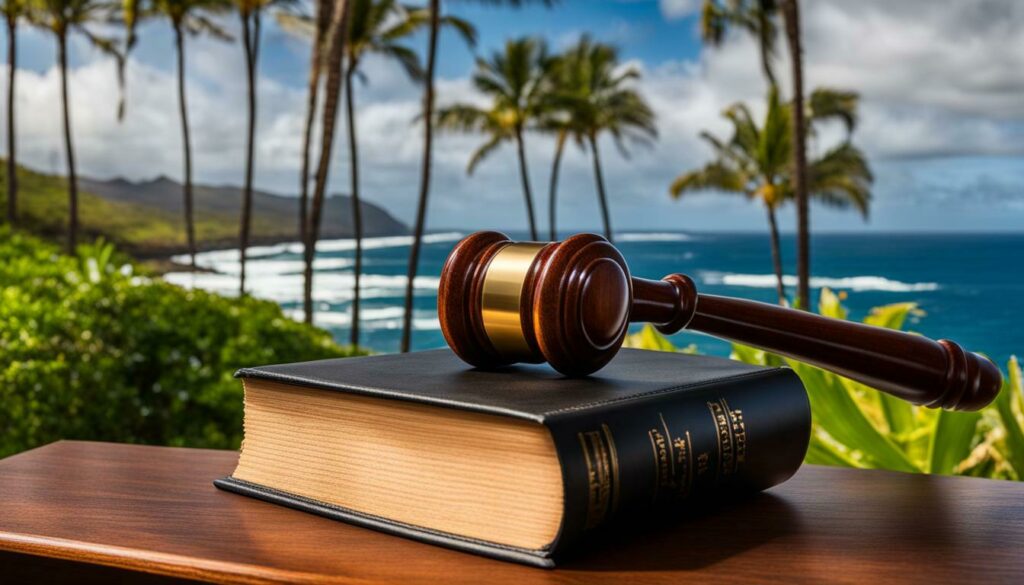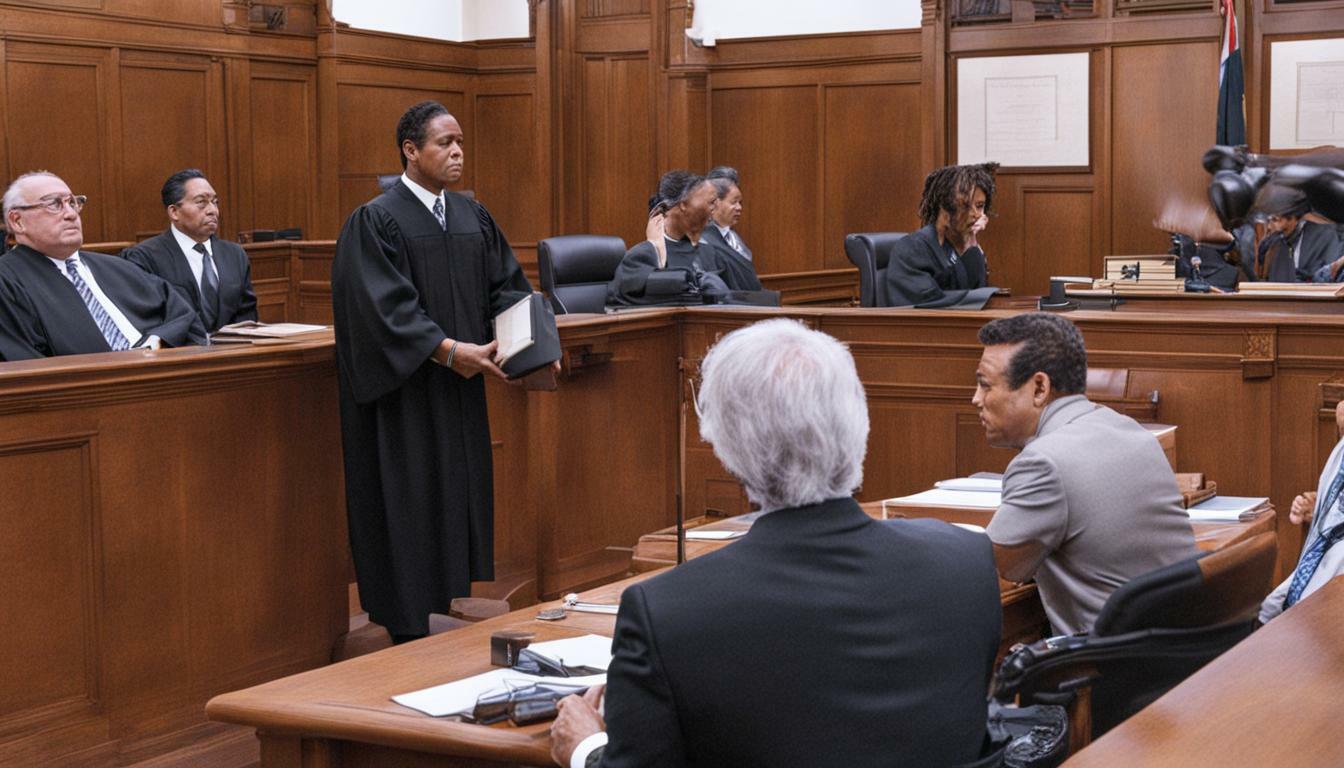Quashing a subpoena in Hawaii can be a daunting task, but with the right guidance and understanding of the legal process, it is possible to challenge and potentially eliminate a subpoena. Navigating the complexities of a subpoena quashing process requires knowledge of Hawaii’s specific laws and defense strategies. In this article, we will provide essential insights, legal tips, and recent case studies to help you successfully challenge a subpoena in Hawaii.
- Understanding the process of quashing a subpoena in Hawaii is crucial for effectively challenging its enforcement.
- Familiarize yourself with Hawaii’s specific subpoena laws and defense strategies to build a strong case.
- Recent case studies, such as the dispute between KAHEA and the State of Hawai‘i Attorney General, provide valuable insights into successful subpoena quashing.
- The court’s decision in the KAHEA case highlights the importance of reasonable requests and provides guidance on how to navigate retaliation claims.
- Knowing the rules for issuing and responding to subpoenas in Hawaii, including provisions for service, production of documentary evidence, and contempt for non-compliance, is essential for a successful defense.
Understanding Hawaii Subpoena Laws and Defense Strategies
Before embarking on the process of quashing a subpoena in Hawaii, it is crucial to have a solid understanding of the state’s subpoena laws and the various defense strategies available. Hawaii, like most states, has specific laws and regulations governing the issuance and enforcement of subpoenas.
When challenging a subpoena in Hawaii, there are several defense strategies that can be employed. One common defense is to argue that the subpoena is overly broad or unduly burdensome. In such cases, the party receiving the subpoena can request that it be narrowed down or modified to reduce the burden of compliance.
Another defense strategy is to challenge the validity of the subpoena itself. This can be done by questioning whether the subpoena was properly served, whether it complies with the statutory requirements, or whether it violates any constitutional rights. If any of these issues are present, it may provide grounds for quashing the subpoena.
Furthermore, it is important to note that compliance with a subpoena is not always mandatory. Hawaii law recognizes certain privileges, such as attorney-client privilege or doctor-patient privilege, which may excuse a party from producing certain information or documents. It is essential to consult with an attorney to determine if any applicable privileges can be invoked to protect sensitive or confidential information.
Recent Case Study: Quashing a Subpoena in Hawaii Courts
In a recent case involving KAHEA, a Hawaiian environmental alliance, and the State of Hawai‘i Attorney General, there was a dispute over a subpoena issued to First Hawaiian Bank. KAHEA claimed that the subpoena was retaliatory harassment, while the State argued that it was a legitimate exercise of its investigatory powers.
The circuit court partially granted the motion to quash the subpoena but allowed certain requests. On appeal, KAHEA argued that the entire subpoena should have been quashed, citing exceeding statutory authority, unreasonableness, and violation of First Amendment rights.
The court concluded that while the subpoena was valid, two requests for information about funds going into KAHEA’s accounts were unreasonable. The court also dismissed KAHEA’s retaliation claim, citing a lack of evidence. The court affirmed the circuit court’s decision to partially quash the subpoena.
The rules for issuing and responding to subpoenas in Hawaii were outlined, including provisions for service, production of documentary evidence, and contempt for non-compliance. It is essential to familiarize oneself with these rules and consult with legal counsel when facing a subpoena in Hawaii.

To gain a deeper insight into the process of quashing a subpoena in Hawaii courts, it is essential to examine a recent high-profile case that shed light on the reasons for challenging a subpoena, the steps involved, and the outcome of the court’s ruling.
In a recent case involving KAHEA, a Hawaiian environmental alliance, and the State of Hawai‘i Attorney General, there was a dispute over a subpoena issued to First Hawaiian Bank. KAHEA claimed that the subpoena was retaliatory harassment, while the State argued that it was a legitimate exercise of its investigatory powers.
The circuit court partially granted the motion to quash the subpoena but allowed certain requests. On appeal, KAHEA argued that the entire subpoena should have been quashed, citing exceeding statutory authority, unreasonableness, and violation of First Amendment rights.
The court concluded that while the subpoena was valid, two requests for information about funds going into KAHEA’s accounts were unreasonable. The court also dismissed KAHEA’s retaliation claim, citing a lack of evidence. The court affirmed the circuit court’s decision to partially quash the subpoena.
The rules for issuing and responding to subpoenas in Hawaii were outlined, including provisions for service, production of documentary evidence, and contempt for non-compliance.
FAQ
Q: What is the process for quashing a subpoena in Hawaii?
A: The process for quashing a subpoena in Hawaii involves filing a motion to quash with the court. The motion should outline the legal grounds for challenging the subpoena and provide supporting evidence. It is advisable to seek the guidance of an experienced attorney to navigate the complex procedure.
Q: What are the legal considerations when challenging a subpoena in Hawaii?
A: When challenging a subpoena in Hawaii, it is crucial to consider the legal grounds for quashing the subpoena. This may include arguments of exceeding statutory authority, unreasonableness, or violation of constitutional rights. It is recommended to consult with a knowledgeable attorney who can assess the specific circumstances of your case and provide appropriate legal guidance.
Q: What are some effective defense strategies for countering a subpoena in Hawaii?
A: There are several defense strategies that can be employed when countering a subpoena in Hawaii. These include demonstrating that the subpoena is unduly burdensome or oppressive, establishing that the information sought is not relevant to the case, or arguing that the subpoena was issued in bad faith. Consulting with a skilled attorney is crucial to determine the best defense strategy for your specific situation.
Q: Can you provide an example of a recent case involving the quashing of a subpoena in Hawaii?
A: Certainly! One recent case involved a dispute between KAHEA, a Hawaiian environmental alliance, and the State of Hawai‘i Attorney General. The court partially quashed the subpoena issued to First Hawaiian Bank, citing unreasonable requests for information about funds going into KAHEA’s accounts. The court also dismissed KAHEA’s retaliation claim due to a lack of evidence. This case demonstrates the importance of challenging subpoenas that exceed their statutory authority and understanding the legal defenses available.
Q: What are the steps to quash a subpoena in Hawaii?
A: To quash a subpoena in Hawaii, you should first consult with an attorney who can assess the validity of the subpoena and determine the appropriate legal grounds for challenging it. Once the decision is made to challenge the subpoena, a motion to quash should be filed with the court, outlining the reasons for the challenge and supporting evidence. The court will then review the motion and make a decision on whether to quash the subpoena in whole or in part.
Source Links
- https://casetext.com/rule/hawaii-court-rules/hawaii-rules-of-civil-procedure/trials/rule-45-subpoena
- https://ag.hawaii.gov/wp-content/uploads/2021/09/31-Kahea-Opinion.pdf
- https://casetext.com/rule/hawaii-court-rules/hawaii-rules-of-penal-procedure/iv-arraignment-and-preparation-for-trial/rule-17-subpoena






